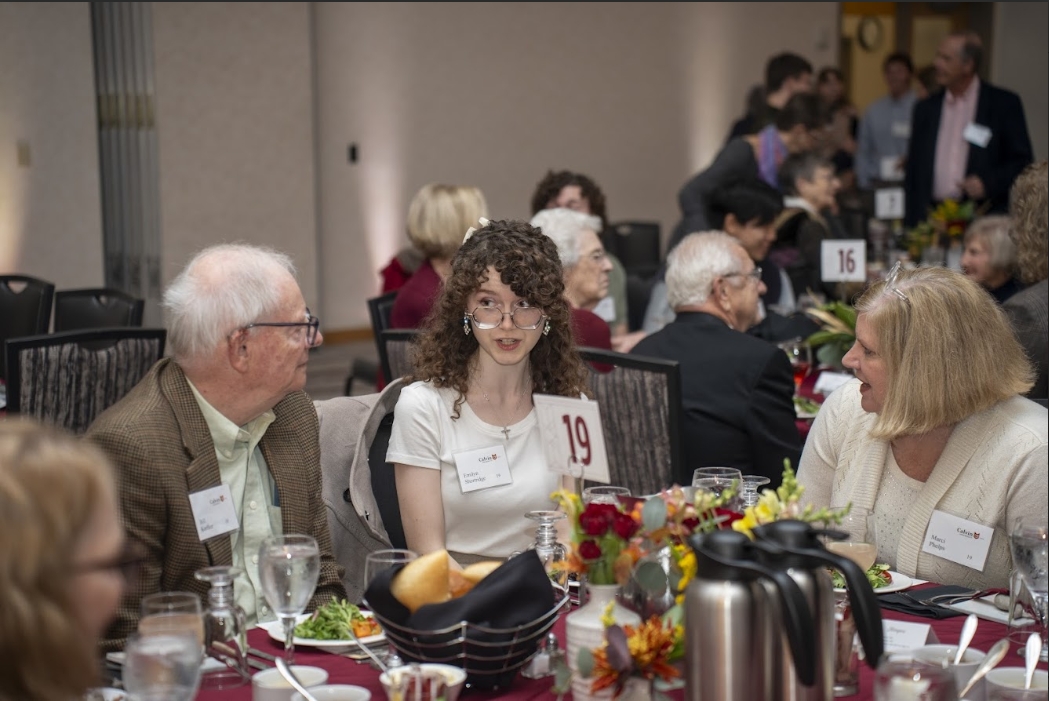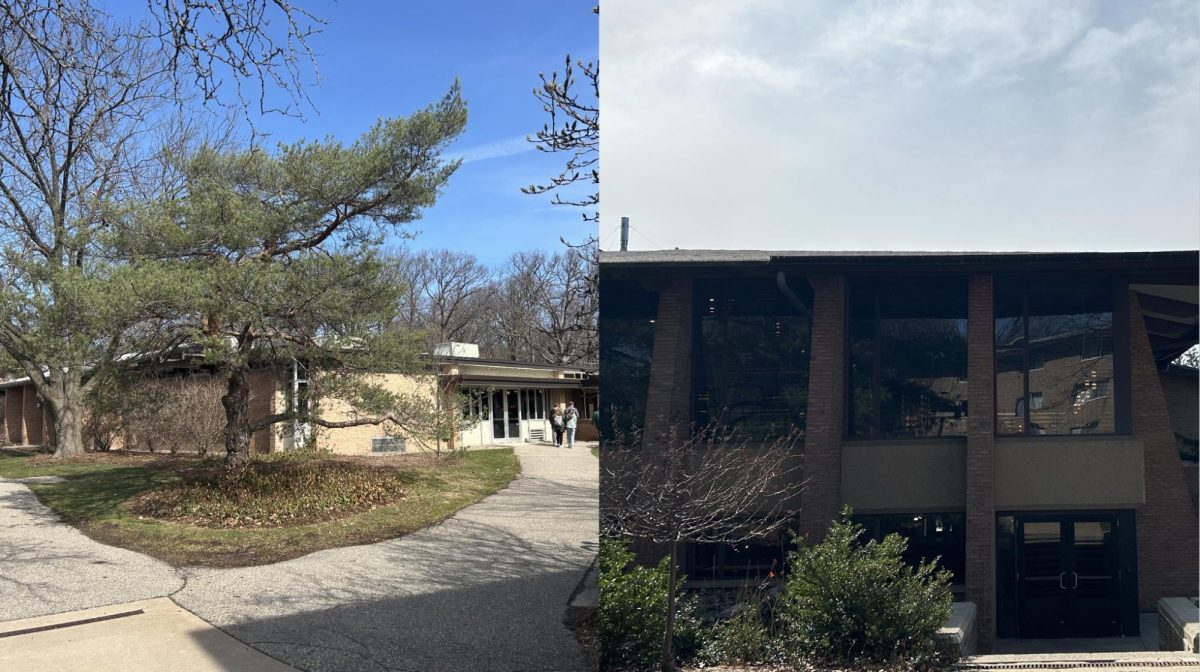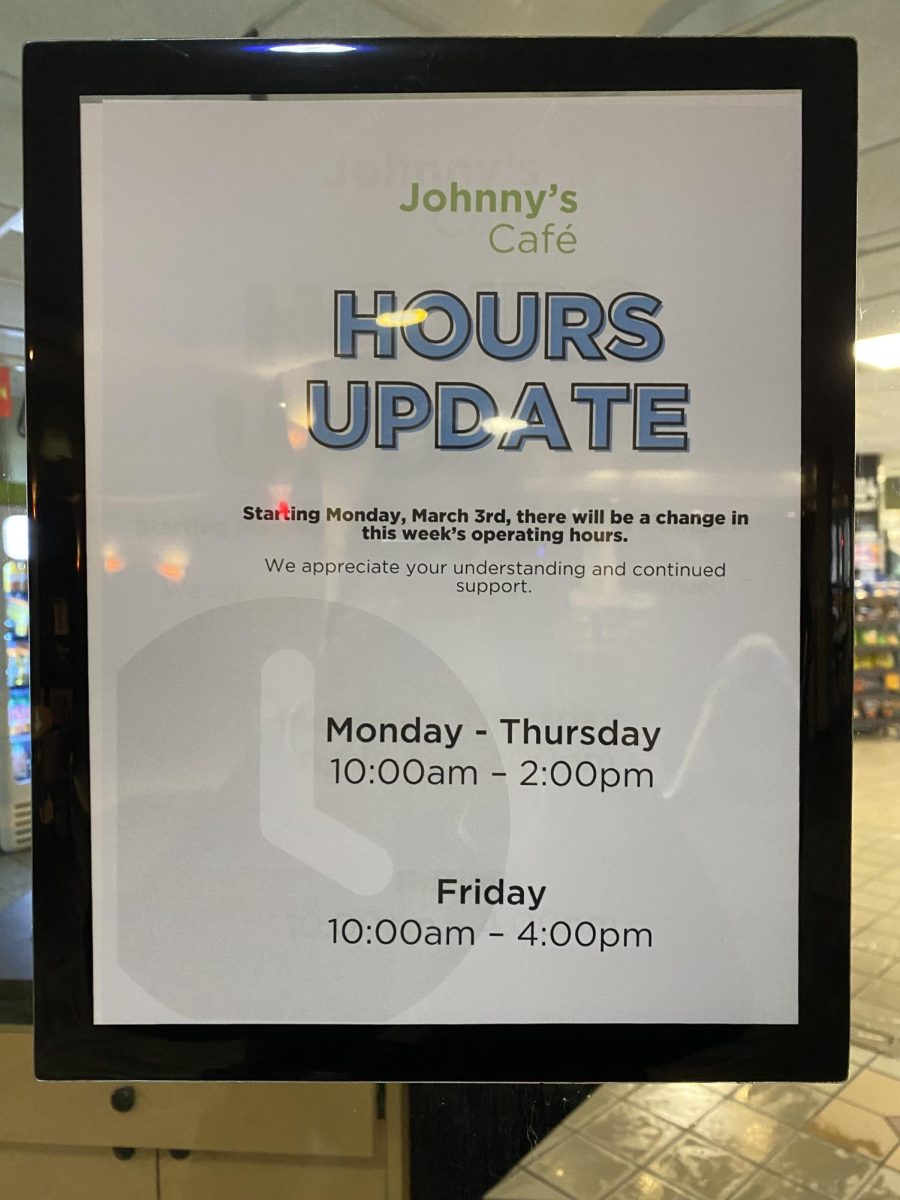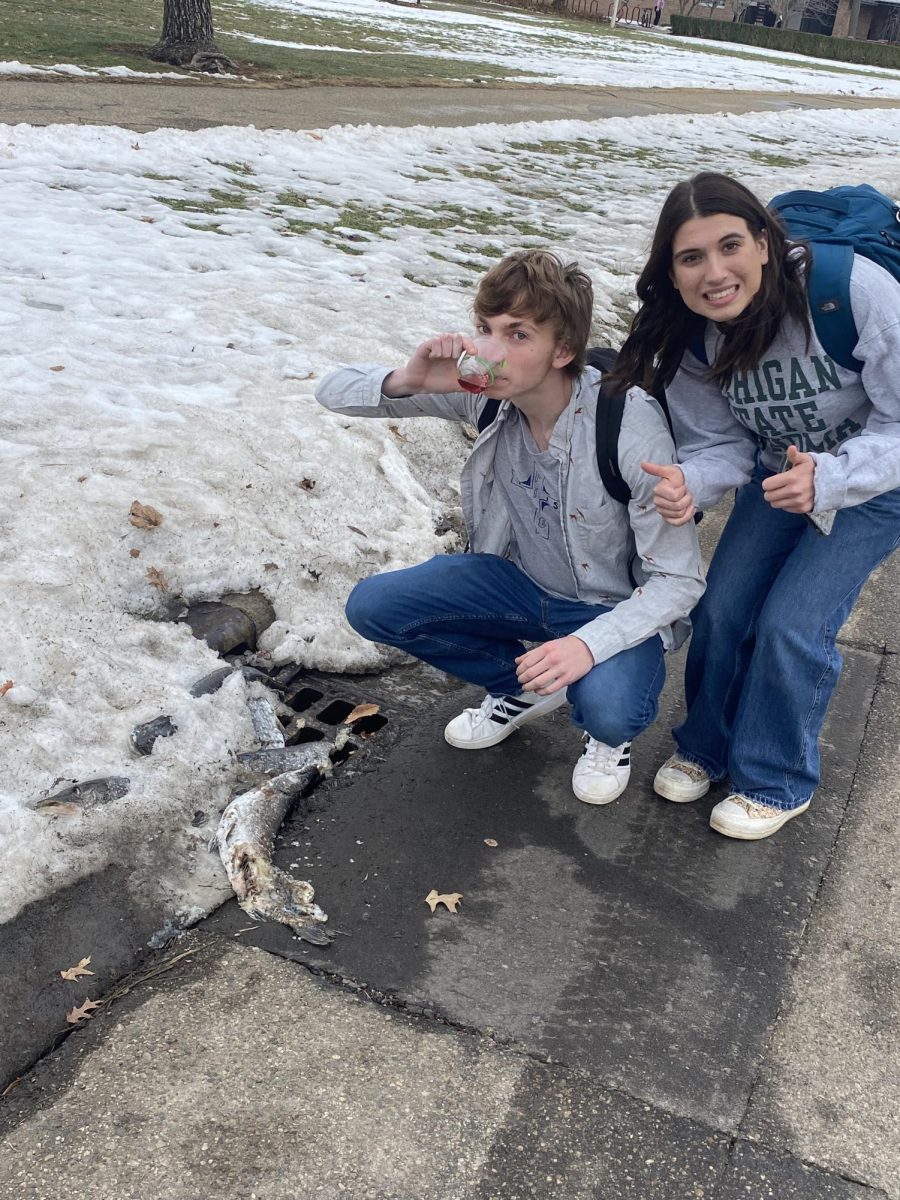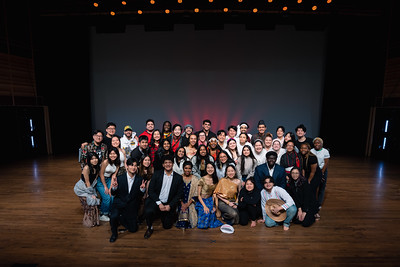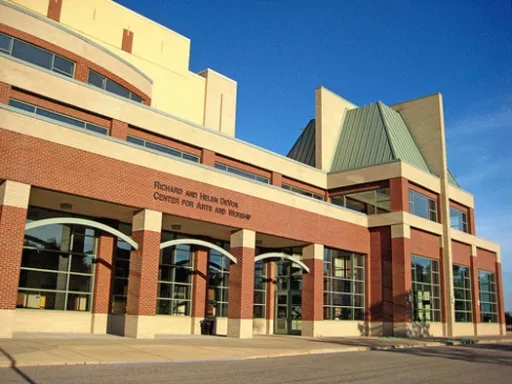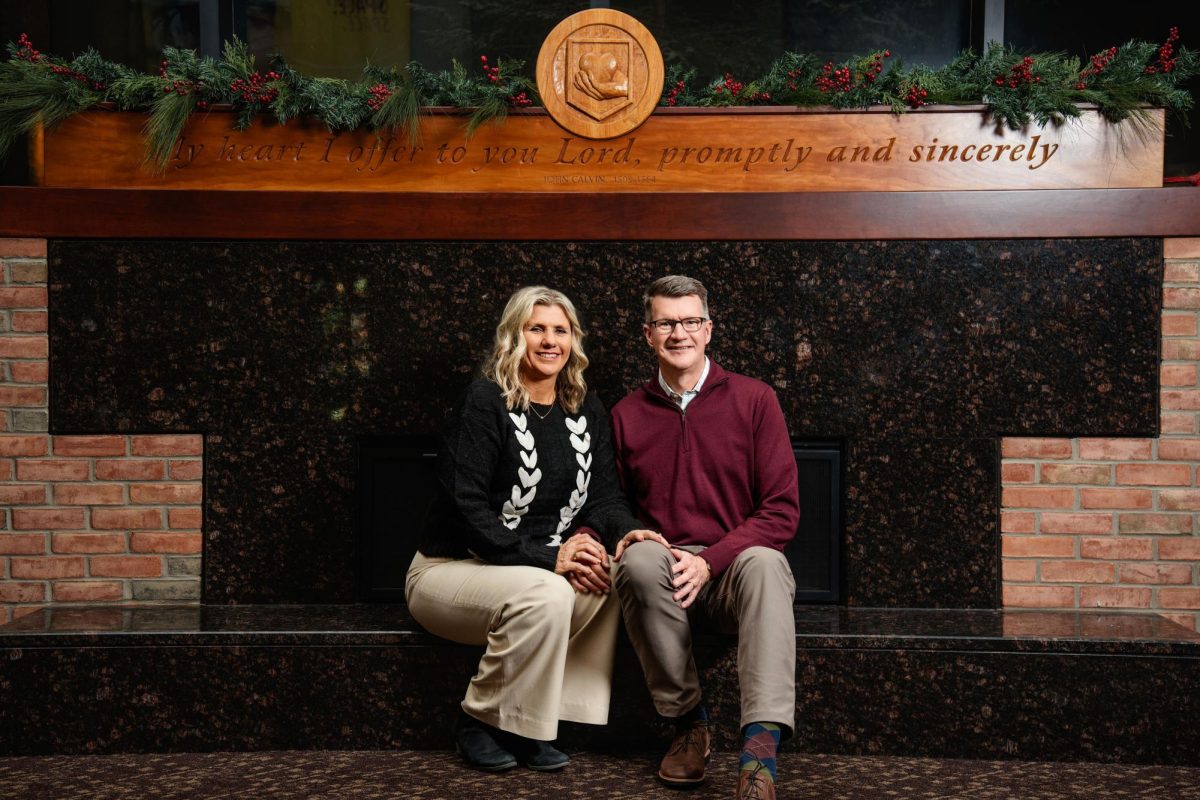Calvin has asked its academic departments to underspend their current budgets by 10% in an effort to balance the budget by fiscal year 2026.
Chief Financial Officer (CFO) Dirk Pruis presented the request and its reasoning at a Sept. 10 faculty senate meeting. The request was also discussed at a faculty town hall meeting and a meeting for department chairs and program directors around this time.
The anticipated budget cuts come after a three-year period in which the university engaged in what Provost Noah Toly called an “invest to grow” strategy. In an effort to attract new students, the university hired over 20 full-time faculty, introduced football, brought back programs such as music education and theater, and began several large, donor-funded construction projects. According to Toly, the university “didn’t balance the budget every year while we were at this, but over the course of all these years, yes, it has to balance out.”
These investments are “paying off in big ways with our recent enrollment success. So now’s the point where we have to bring the spending under control a little more,” said Toly. As a key step in reining in spending, Calvin is asking all academic departments to cut their budgets by 10%.
“So if your budget was for $10,000, the goal was to only spend $9,000 of it so that we could save approximately 10% of the academic division budget,” said Kevin Timpe, department chair of philosophy.
How departments are responding
Departmental budgets are used to cover a variety of costs, including office supplies, lab materials, departmental support staff, and work-related travel expenses. Philosophy, according to Timpe, is a “pretty small and pretty cheap department,” since it requires no lab equipment and does not use many student graders. However, this poses its own challenges when considering budget cuts, as there are simply fewer areas to cut. Timpe also noted its budget, like that of many other departments, “has already been cut substantially over the past five or six years.”
The requested budget cuts come at a time when many items are more expensive than in the past. Although inflation has slowed, prices for many of these departmental budget items remain high. “That is often the biggest challenge for STEM programs that have labs, because those labs have to be equipped with chemicals, materials, whatever you need, and the purchasing of those items are just generally going up,” said Kumar Sinniah, department chair of chemistry and biochemistry.
Despite these obstacles, both Timpe and Sinniah said that their departments had looked for ways to cut costs where they could. For the philosophy department, that meant not replacing the department’s student worker after its previous worker left; instead, that work is now done by Timpe or Corrie Bakker, the department’s administrative assistant.
For the chemistry department, this might look like looking for lab activities that use less expensive materials. “I think, like, most departments, our department is very conscientious about often thinking about what new experiments can we actually put forward for student learning that doesn’t require expensive resources,” said Sinniah. “Having said that, we still have to operate certain instrumentation in our department.”
Certain expenses might also be passed on to students. Some STEM classes and other courses that might require additional materials already require a lab fee. “My understanding is that that [lab] fee is going to increase in the spring semester,” said Sinniah.
Other academic departments have also made some changes aimed at helping reduce costs. The department of off-campus programs made up its mind to cancel the Fall 2025 Hungary program in part because it would bring the department in line with the requested 10% budget cut, according to Cynthia Slagter, director of off-campus programs.
At the same time, Slagter was careful to clarify that the Hungary program was chosen for cuts largely because the department was already having difficulties finding a professor to lead it in 2025. “A big challenge for this office, and it’s become increasingly so, is getting people to serve as program directors,” said Slagter.
This is partly because some departments are smaller than they used to be, due to cuts made during the downsize. “If you have more faculty, you have more to choose from,” said Slagter. However, Slagter said other factors – such as an increased number of faculty whose spouses work – also play a role.
None of the other 2025 off-campus programs are affected by the budget cuts, and the Hungary program is expected to return in Fall 2026, according to Slagter.
How faculty are reacting
Making budget cuts is rarely popular. Because of this, some faculty mentioned concerns about how this would affect faculty morale, which took a hit during the combined stress of the downsize and the COVID-19 pandemic. “Often when there’s a budget crisis, faculty members and staff assume it’s the administration who dropped the ball that led to that crisis. And as a result, there is that gap of trust between faculty and staff and administrators,” said Sinniah.
Fear of losing one’s job can contribute to this lack of morale. David Urban, professor of English, was on faculty senate a little over a decade ago when it was revealed that Calvin was paying $6.2 million annually to service its debt. According to Urban, financial stress like this creates an environment where “it’s hard to have a team mentality where you really want what’s best for everybody.”
Urban was careful to clarify that he does not feel that the atmosphere at Calvin right now is the same as the situation a decade ago. Urban said the administration kept things “positive” and “Christ-centered” during the town hall he attended. However, he also said that it “wouldn’t surprise” him if the need to reduce spending led to faculty or program cuts.
When asked whether the budget cuts could affect newly introduced or reintroduced programs, Toly said “we could have programs that are in a position where they need to reimagine how things go, reimagine some of their course offerings, do things more efficiently.”
Toly emphasized that the possibility of change in program offerings is a natural expectation for all universities. “We’re not in the business of making sure that every program and experience that we have is perpetually supported… sometimes we have to add things, and sometimes we have to subtract things, and sometimes we have to reimagine them,” Toly said.
Sinniah said that it’s “very hard… to foresee” the university not needing to get rid of programs in the coming years. Should such cuts become necessary, he hopes to see “transparency in the process and a genuine desire to involve” faculty, staff, and students, possibly through discussions in focus groups.
Amid this uncertainty, Urban expressed optimism for the future of the university. “I think we’re moving in the right direction. It’s just a realization that you can be moving in the right direction but still be facing significant financial challenges,” said Urban.




